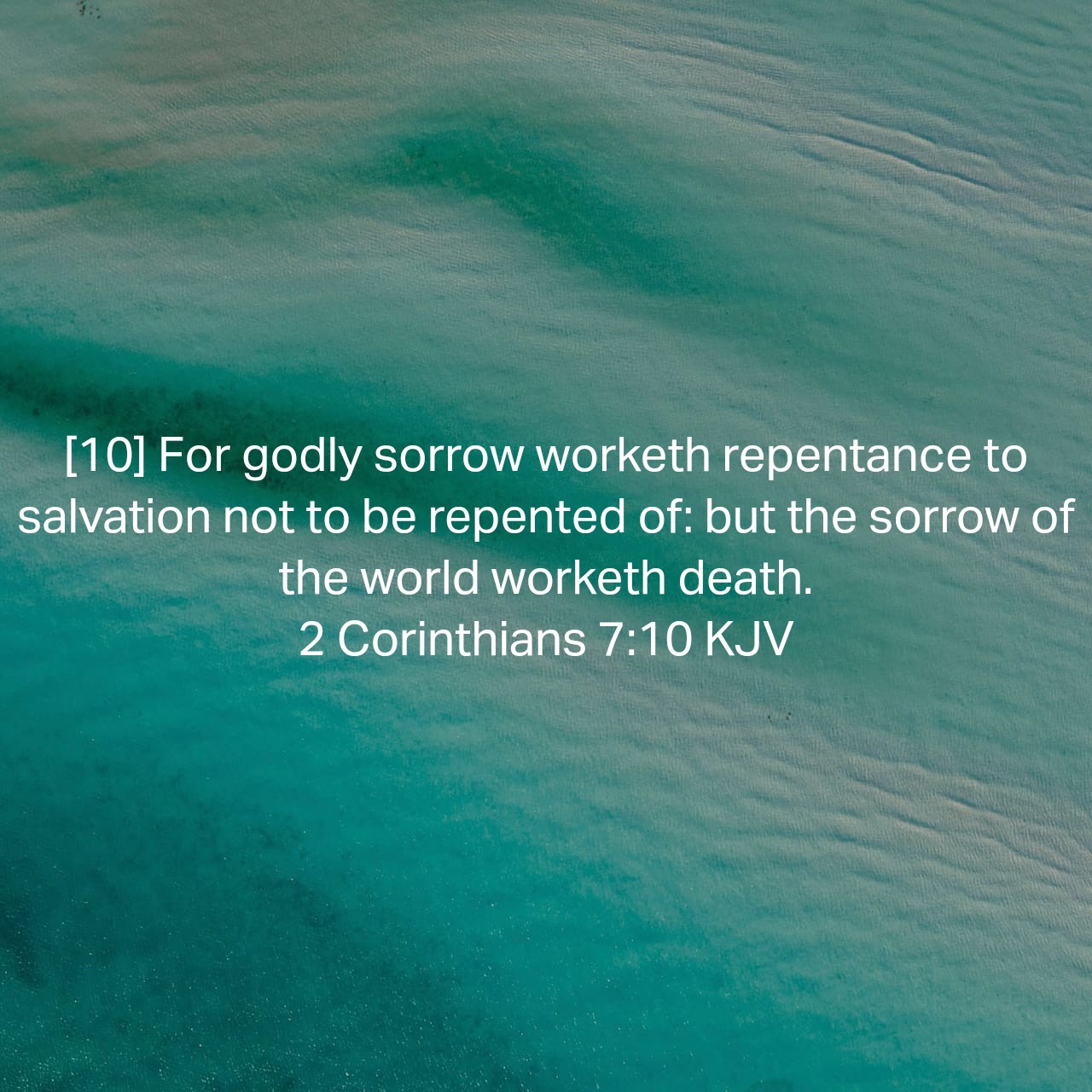“For godly sorrow worketh repentance to salvation not to be repented of: but the sorrow of the world worketh death.”
Introduction
2 Corinthians 7:10 distinguishes between two types of sorrow: godly sorrow that leads to repentance and salvation, and worldly sorrow that leads to death.
Interpretation
This verse teaches that sorrow for sin, when aligned with godly intent, leads to genuine repentance and salvation. In contrast, worldly sorrow, which lacks genuine repentance, results in spiritual and emotional death.
Modern Day Application Across Various Fields
1. Theology
Encourages believers to embrace godly sorrow for their sins, leading to true repentance and salvation.
2. Philosophy
Explores the nature of genuine repentance and the differences between constructive and destructive emotional responses.
3. Psychology
Highlights the importance of processing emotions in a healthy way, leading to personal growth and positive change.
4. Education
Stresses the value of teaching about genuine remorse and the importance of making amends.
5. Leadership
Advises leaders to cultivate an environment where constructive feedback leads to genuine improvement and growth.
6. Social Sciences
Examines the impact of authentic remorse and repentance on individual behavior and societal norms.
7. Communication
Stresses the importance of honest and sincere communication about mistakes and the process of making amends.
